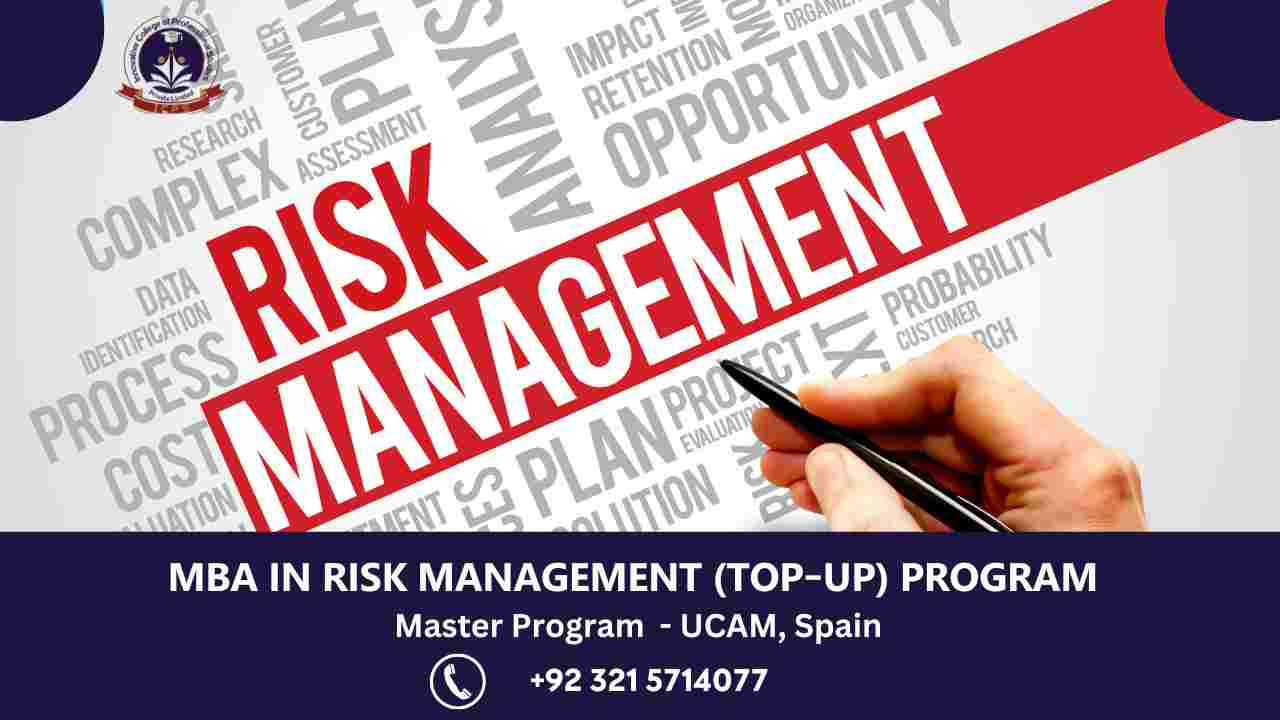The Master of Business Administration degree, specializing in Risk Management, is tailored to equip students with essential skills for effectively identifying and analyzing organizational risks. Through this program, learners develop expertise in risk management, including strategies for risk minimization and organizational adjustments to enhance prevention. The curriculum covers contemporary risk practices, encompassing crisis management, cyber risk, insurance and risk transfer, business continuity management, and global risk management.
Participants explore cutting-edge risk management processes, empowering them to recognize emerging organizational risks, analyze potential impacts, and devise effective response strategies.
Upon program completion, graduates are well-prepared to advance their careers, showcasing high-level decision-making and problem-solving skills crucial for leadership roles in risk management across various industries. The program also opens doors to opportunities in compliance, audits, and information technology fields.
The core business skills acquired in this program can facilitate the establishment of consulting businesses or further education in the field.
WHY THIS PROGRAM
- WES recognized qualification
- Program designed exclusively for professionals with work experience
- Comprehensive study material and e-library support available at no additional cost
- Become eligible to gain direct entry into relevant Doctorate / PhD programme
- Online Assignments and Assessment
- European Credit Transfer and Accumulation System (60 ECTS) enabled program
- Installment payment option available
- MBA Degree awarded from UCAM, Spain
WHO SHOULD ENROLL
MBA – Risk Management is ideal for :
- Chief Risk Officer (CRO)
- Director of Risk Management
- Head of Risk and Compliance
- Enterprise Risk Manager
- Program Manager
- Financial Experts
WHAT YOU’LL EARN
- MBA – Risk Management Degree from UCAM, Spain
- Level 7 Diploma from OTHM, UK (Optional)
- Eligible to Gain Direct Entry into Relevant Doctorate/PhD program
ELIGIBILITY
Graduate
Minimum 2 Years of Managerial Work Experience
Non-Graduate
Minimum 5 Years of Managerial Work Experience
* A very small percentage of applicants are approved on the basis of Recognition of Prior Learning (RPL).
Note: Candidates can only apply for the program which is relevant to their area of work experience.
SYLLABUS
This program is available for study in 2 stages over 12 months, giving learners the flexibility they need to master the complexities in the business administration with focus on Risk Management domain.
Stage 1
All the units of Stage 1 are mandatory.
Units
- Strategic Management
- Strategic Leadership
- Strategic Human Resource Management
- Strategic Financial Management
- Strategic Risk Management
- Risk Analysis and Modelling
Stage 2
Learners on successful completion of Stage 1, would move to next stage of the MBA program. The last stage consists of 1 unit.
Unit – Dissertation
This unit is designed to make a major contribution to learners’ professional and intellectual development, by enabling them to demonstrate their capacity for sustained independent thought, learning and critical reflection.
Dissertation should be of 12,000 words.
About UCAM, Spain
The Universidad Católica San Antonio (UCAM), is a private university located in Murcia in south-eastern Spain founded in 1996. UCAM offers undergraduate and graduate academic programs taught by faculty and researchers engaged with the quality of the education provided. The university is characterized by a firm commitment to Catholic orthodoxy and the moral and social doctrines of the Church. UCAM aims to contribute to the transmission of human knowledge and the development of research, from the critical, responsible and creative freedom of the person, according to gospel principles. UCAM developed a system of quality management applied to teaching, research and services to ensure the human relations among all members of the university community in order to make more effective educational work and research.







